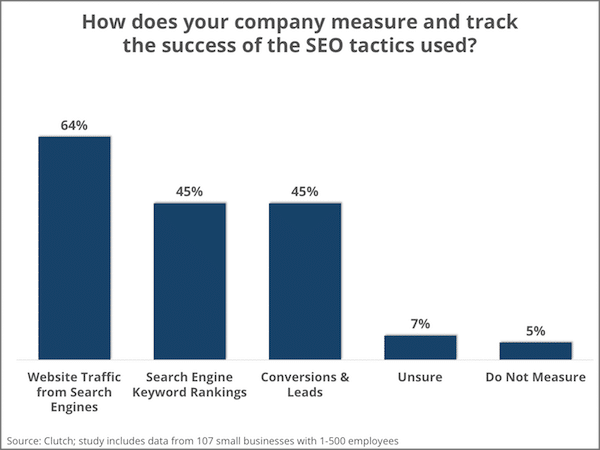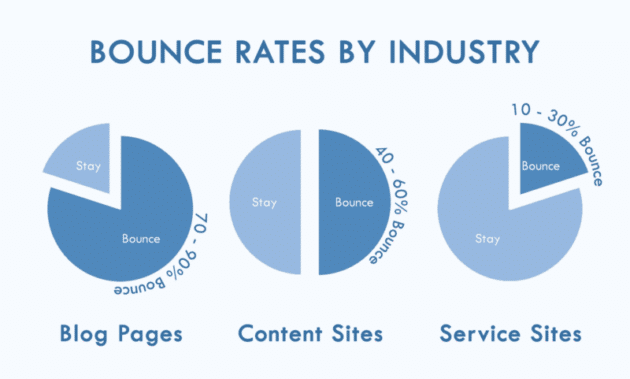Over the past several years, search engine optimization (SEO) has grown into a huge industry. The changing requirements of search engines and changing consumer preferences make it more and more difficult to attract more organic traffic and promote your business through owned and earned media rather than paid media.
For a small business owner or even a kid business owner, this transforms into a two-sides-of-the-coin choice where they either have to recruit expensive professional aid or follow the trial-and-error approach. Which can come with high risks of accidentally treading into grey-hat or black-hat SEO territory and being punished by Google for doing this for months to come.
Many people who start to promote their sites have heard about SEO or even have an approximate idea. However, basic knowledge is not enough. Frequently, projects fail because a small business owner does not have an SEO promotion strategy. The budget is allocated only for 1–2 tools, which are used chaotically and without any logic. Of course, they don’t get impressive results in a short period of time, the budget is wasted, and the business owner is frustrated.
To achieve real success, SEO must be approached patiently and holistically. Marketers should have a thought-out strategy and a step-by-step plan of action. It doesn’t have to be this difficult if you see a system behind the random recommendations on fine-tuning individual aspects of your marketing strategy that you frequently find in online how-to guides.
In this article, we attempt to consolidate individual SEO instruments into some easy steps that allow you to gradually build your website reach and online credibility the expert way.
Setting the Goal

Promotion without clear goals spells failure. If an SEO specialist starts an SEO promotion, it’s imperative to decide on the expected results. SEO tools, promotion methods, and of course, the budget depend on the goals set.
Let’s see what can be considered goals in terms of search engine optimization.
- Sales growth. This goal is vital for commercial sites. These sites need conversion and return on investment (ROI). Key parameters for them are more orders, significantly more average spending, and higher margins.
- Higher ranking in the SERP for key queries. This goal can be relevant for both commercial and informational sites.
- Grow incoming traffic. Such goals are set for informational and entertainment sites, magazines, and blogs. In addition, the rise in the number of visitor traffic is also important for companies that do not yet understand their audience, which will be converted into buyers.
When Do You Need an SEO Strategy?

Once an SEO specialist sets the promotion goals, it is the right time to develop an SEO strategy that really pays off. An SEO strategy is an extensive set of actions to achieve the company’s main SEO goals (high search positions, organic traffic, and bringing in a target audience from search queries).
When you need an SEO strategy:
- The site aims to make an impact in its niche aggressively.
- Overly competitive markets where every aspect of promotion needs to be executed perfectly.
- When the site grows fast and all the work of the site cannot be maintained.
When you don’t need an SEO strategy:
- You optimize a small local site and compete only with the same small companies. In this case, a general strategy will be enough.
- Limited budget and other factors where a site needs to economize.
- You use black hat SEO methods and work only on a high number of external links.
A website promotion strategy is needed to identify and streamline SEO processes to achieve the necessary results and goals ultimately.
So, what goes into an SEO strategy? Niche analysis, competitor research, collecting the semantic core, tech website audit, content strategy, and selection of the most suitable methods to attract the target audience (external promotion).
Why Do You Need an SEO Strategy?

Search engine optimization (SEO) is the process of attracting organic traffic to your website through ranking on the search engine results page (SERP). This means you don’t pay for the traffic; instead, you use the right SEO strategy, such as having the right keywords, to appear on search queries. When you get your SEO strategies right and get more visitors, you can increase your conversion and earn more revenue.
Unfortunately, getting your SEO right isn’t a walk in the park. Most businesses try to rank but fail, especially since many companies sell similar products and services. Therefore, you need to develop a result-oriented strategy that’ll work in the long term. However, the strategy should be agile so you can easily drop what’s not working and focus on those that work to your advantage.
One thing you can be sure about SEO is that it won’t work in a day. This is because it’ll take some time and applying the right strategies to achieve the results you want. That being said, you need to create an SEO strategy. Here are more reasons why you need one:
Continual efforts bring results:
The top spot and the first pages of search engines are always places every other business wants to occupy. So, being there today doesn’t guarantee that you’ll be there the next month. You need to make sure you don’t lose your space by putting continual efforts into your SEO. Failure to make the improvements will give your competitors an edge.
An SEO plan will ensure that you remain committed to your long-term plan. That way, you don’t lose track, and you’ll put effort into achieving your goals.
Improves your adaptability:
Ranking factors change from time to time, depending on what consumers look for. Therefore, what worked at the start, may not work now. So, you need to be adaptable. Having a strategy will help you prepare for sudden changes and implement them in your SEO, allowing you to remain where you want to be.
How to Create SEO Strategies for Successful Website Promotion?

As it’s evident that having an SEO strategy is essential in your business, you need to create one. However, developing the right strategy could be challenging for many. Fortunately, here are some of the tips you can use to develop a result-oriented SEO strategy.
1. Niche Analysis
Any strategy requires a preliminary analysis of the niche. First of all, even before starting a business and thinking about its promotion, entrepreneurs need to find out exactly what the target audience is interested in. For example, the query “buy a new car” in the US is typed in Google by 6,600 people a month.
The best solution is to identify the struggles and needs of these people and to offer them effective solutions. The target audience is significant for any business. If the marketer promotes a product to people who are not interested in it, sales and conversions will be low. The website’s most valuable feature is being a marketing tool. For it to be profitable, marketers need to know who to offer their goods or services.
2. Competitor Analysis
Next, analyze competitors in the market. How do they attract customers? What traffic do they have per month? What marketing channels do they use to attract users? This information will help to choose the right direction for the site’s development strategy and tactical plan.
However, before comparing the site with competitors, the business owner first needs to decide who exactly is a real competitor. Suppose the entrepreneur starts selling clothes, competing with big brands makes no sense. It is more reasonable to define the “weight class” and analyze companies comparable to the business.
To spy on other companies, marketers usually use different services. It has a Competitive Research tool that analyzes what keywords they are ranked for, how much traffic they get, the cost of paid advertising in their niche, domain, and keyword performance over time thanks to historical data since February 2020. Plus, an SEO specialist can see the other competitors in their specialty based on the metrics. So, there’s lots and lots of data to analyze.
3. Formation of the Semantic Core
Promotion always starts with semantics. However, marketers need to collect queries correctly. The main goal of SEO is to show potential visitors that the site has relevant information and is at the top of the search results, so they don’t need to click anywhere else.
When collecting keywords, remember that they are divided into informational and commercial requests. In addition, frequency takes the leadership. Let’s have a look at the types of keyword frequency:
- High-frequency queries. These are queries that are trendy and high-converting which automatically makes them more competitive compared to others. Such queries are primarily used for internal SEO optimization and competition with other market giants.
- Medium-frequency requests. They allow the growth of the target audience gradually. Such queries are also used for internal optimization, writing quality content, and placing external links on authoritative resources (in this case, such keywords are used as anchors).
- Low-frequency queries. These are keywords that are very unilateral and are not popular among users. Still, if it is a small business that works in a specific niche, it can serve it well and bring the website to the top of search results in certain circumstances.
When forming the semantic core, the SEO specialist collects keywords of all frequencies, then divides and uses them for different purposes (on specific pages, in articles, for guest posts, etc.).
4. Technical Aspects

To promote the site, entrepreneurs must ensure the technical integrity of the site. The promotion of a technically unprepared platform not only makes no sense but can even harm the business. Clients should not be given a negative experience because they can leave the site at once and never return, even if all the problems are fixed eventually.
There are primary website technical requirements:
- Fast site loading.
- No malicious scripts.
- Correctly display content in all browsers.
- Responsive design.
- No hidden, invisible content.
Google has special PageRank and Core Web Vitals algorithms that assess sites and determine their SERP rankings.
When the SEO specialist opens the site for indexing, it must be technically ready and meet the search engine requirements. Further, experts only improve the website and bring it in line with Google’s core updates.
Before we discuss any driving techniques, we need to ensure that our marketing vehicle is actually functional. In the world of SEO, technical aspects are an absolute prerequisite for success. Unfortunately, their significance is frequently overlooked by marketers. In this section, we will analyze three stepping stones that allow you to optimize your website by applying more advanced techniques.
Outsource Technical SEO to an Agency
There are cases where you don’t have the budget to employ an SEO expert on a full-time basis, or your team isn’t at full capacity to develop an SEO strategy. But this doesn’t mean that you have to miss out on SEO. Instead, you should consider outsourcing your SEO needs to a reputable agency to help bring traffic and conversations to your business.
A reputable SEO agency will have experts who’ll work on your SEO needs. This way, you won’t need to spend as much time learning the basics as your in-house team would take. Secondly, the agency will cost less but deliver exceptional results to help you rank. The agency will also handle a wide range of strategies, such as content strategies, white-label SEO, design services, and affiliate SEO. Combining these strategies is a surefire way of getting results.
Improve Your Website Loading Speeds
According to Google’s recommendations, any website must load within 3 seconds or less in order to perform well in search engine outputs. However, the actual situation is even worse. According to digital marketing expert Neil Patel, 47% of modern consumers expect pages to load within 2 seconds while 40% of them choose to leave a website if it does not load within 3 seconds. In this scenario, delays directly lead to poor conversion rates and lost customers. Here are some practical steps that will significantly reduce your website loading speeds:
- Minify all scripts (CSS, JavaScript, etc.) used on your platform.
- Use compressed image and video formats.
- Avoid the use of redirects.
These three steps will allow you to reduce your loading speeds below three seconds, which is crucial for minimizing the number of prospective leads leaving your website right away (bounce rates). More complex techniques in this sphere such as browser caching are less relevant for you at this phase since they seek to improve the user experience during further visits while you should be presently focused on the first impressions you make on new clients.

Make Your Website Mobile-friendly
In recent years, more people have been using mobile phones to access the internet. And this means one thing – you need to take your business there. When search engines rank websites, they keep the users in mind. If your website isn’t optimized for mobile phones, you’ll have negative SEO. Moreover, if people can’t access your website through their phones or have trouble doing so, they get frustrated and leave the site. Consequently, you’ll lose traffic.
To make your website mobile-friendly and get the best out of your SEO strategies, try the following ideas:
- Use a responsive design: Your website should display on a mobile phone the way it would on a computer or a tablet. This means all the important details on your landing page, content page, or payment page should be displayed appropriately. The font size should also be user-friendly, so people don’t struggle reading.
- Keep size and space in mind: The links on your website should be spaced out correctly, so they don’t appear congested in one area. The buttons should also be well-spaced and large enough for users to click them easily.
- Avoid pop-ups: Nothing frustrates a mobile user as encounter pop-ups every time they try to access a website. This is because it’s hard to find the buttons to close them, and they’ll decide to leave your website. So, to avoid losing traffic due to frustrated visitors, avoid pop-ups.
Find an Optimal Hosting Provider
Most marketers and SEO experts dream of luring thousands of consumers to the websites they promote. Unfortunately, few of them actually appraise whether these platforms are capable of withstanding such loads in the first place.
The math is simple:
- Getting data from a nearby server to the end user takes time.
- Physical distance increases loading speeds and affects your conversion rates.
- Hosting provider bandwidth determines the number of consumers capable of accessing your website simultaneously.
If you have a lot of prospective leads entering your websites from different areas, there comes a point when all your bandwidth will be used up. Afterward, all of them may experience page loading problems or be unable to browse your platform entirely. This point may come earlier if your website is not optimized for good access speeds in the first place. Make sure that you have taken care of the first two technical aspects prior to proceeding to the next section.
Optimize Your Website for Voice Search
Until recently, most businesses didn’t take voice search as a significant player in SEO ranking. However, about 58% of consumers started using it to look for services and local business information. Moreover, most devices now use voice searches, such as vehicles, medical devices, and other home appliances, so their popularity will only increase.
Thus, your SEO strategy should include tapping into this trend. By doing so, your business will get noticed easily.
Here’s how you can do it:
- Write your titles and headings in a question format.
- Adjust your keywords to favor conversational tones and searches.
- Change long-tailed keywords into questions and publish content that answers the questions.
If a group of visitors can find you by typing the relevant keywords on search engines, make it possible for those who want to use voice search to find you, too.
5. Website-side SEO

These instruments are focused on the website itself in order to realize the main concept of pull marketing. In this scenario, your platform becomes a magnet attracting organic traffic passively, which is the ultimate goal of a well-designed SEO strategy.
Select Your Key Topics
Multiple Google metrics including YMYL and EEAT are directly associated with the concepts of authoritativeness, expertise, and trustworthiness. In combination with the planned elimination of third-party cookies and other similar measures, this clearly indicates that the online marketing of the future will become pull-based content marketing rather than traditional ad-driven pull-based marketing. The best thing to adjust to this new status quo is to focus on the key areas of your expertise when producing materials for your website. Here are some practical ideas on how you can do this:
- Identify the best-performing keywords in your sphere associated with your products and/or services.
- Make a list of 10+ ‘areas of power’ in which you can produce high-quality content creating value for your audiences.
- Find the topics emerging at the intersection of these two spheres.
- Organize your website and social media around these concepts.
While this may sound simple, many brands are presently ‘spreading themselves too thin’ by trying to be everything for everyone. If your area of competence is professional audio equipment, making podcasts about a new Marvel movie as a way to board the hype train should not be your best option for reaching your audiences.
Identify Your Optimal Keywords
Keyword research is frequently considered the ‘meat and potatoes’ of SEO. Here is why this sphere is a crucial but frequently misunderstood one:
- The keywords used in your website materials should match the ones sought by your targeted audiences.
- Using the ‘right’ keywords can lead to a boost in inbound traffic.
- However, high-ranking keywords are naturally used by hundreds of other marketers in this sphere.
- As a result, simply copying top-10 keywords in your niche exposes you to competition with larger rivals and can easily make you invisible to users.
- At the same time, the use of low-ranking keywords means that your website will not be discovered by many people, which leads to decreasing traffic figures.
Do the points above sound confusing and contradictory to you? Well, this is why many beginning SEO enthusiasts give up too early and seek the aid of professional experts. Let’s reformulate these ideas with more practical and actionable principles:
- Identify the keywords that ideally describe your business offerings to your prospective audiences.
- Appraise their relative popularity using Google’s Keyword Tool or a similar instrument.
- Evaluate your website authority as the factor determining your capability to rank high using specific keywords in your sphere of interest.
- Combine your unique keywords with top-ranking ones to balance exposure to competition with your unique representation.
It should be noted that the simultaneous use of keyword optimization with content marketing and authority-building creates valuable synergies of scale allowing you to perform well in both dimensions.

Integrate Keywords in a Natural Manner
Many marketers make the mistake of using the identified keywords in every text on their website, which makes everything look unnatural. This strategy provided some results in the past but is presently discouraged by Google.
Here are some alternative places into which you can integrate keywords in a more natural manner:
- Page headings and first paragraphs of your texts.
- Page URL address.
- Meta descriptions.
- Page title.
- Text subheadings.
- Image alt tags.
This allows you to rank in the right categories in search outputs without being too intrusive with keywords within your website content.
Consider the Implications of Locality
If you are a local physical business rather than a global startup selling intangible services, the aforementioned unique keywords may include the name of your city or your district. This narrow positioning may be especially effective for spontaneous shoppers who are looking for new restaurants or stores in their area and want to make instant purchase decisions. Make sure that you have filled all fields on the Google My Business form and have added your location to all local Yellow Pages websites. This will ensure that local search results will rank you high on the list of outputs and will generate incoming traffic without additional advertising costs.
Divide and Conquer
Another interesting instrument is the use of different website pages for different topics. While this sounds logical, many traditional marketers continue to squeeze as many keywords as possible within the same text or content segment. This approach does not work anymore and may be punished by Google as ‘grey hat SEO’ since it does not add any value for users reading messy and uninteresting ‘optimized’ texts. The best strategy here is to create separate pages for different topics you want to cover. This allows you to brief readers on each element of your offerings you consider relevant while maximizing the use of highly relevant keywords within each area of your website.
Set Up a Content Plan
The next step to building your online authority is to create a content plan. While many marketers tend to rely on inspiration, there are some huge practical benefits to scheduling all your future posts from an SEO perspective:
- Your key audiences know when to expect new content and visit your website or social media page more regularly.
- If you allocate different days of the week to different topics, this creates predictability for the fans of specific content types/authors.
- Scheduling allows you to ‘stock up’ future content and automate its upload to prevent any force majeure interruptions disrupting your SEO consistency.
Focus on Creating Quality Content
Image source: Cxl.com.
Content is still king, which is why search engines are interested in websites that develop quality and original content. Publishing quality content has always played a crucial part in ranking, and if you want to appear top of search results, you have to do so.
There is no way you get high rankings with low-quality, unauthorized, and plagiarized pieces of content. It covers all the information on the site: articles and product descriptions, photographs and images, videos, etc.
Quality content is a key aspect of promoting any website. Videos with expert commentary, pictures with step-by-step instructions, articles with detailed reviews or practical tips, etc., can be considered quality content.
For crawlers, both keywords and behavioral factors are important. Bots track how users behave on a site. If visitors spend a lot of time on the site (and quality content can help SEO specialists with that), this means that the site is useful for users and can be ranked higher.
In many niches, if users click on the site but leave in a few seconds because of poor or irrelevant content, it’s an indication the site is not resourceful. But if they have found what they need and don’t continue their search, everything is fine. Anyway, it’s all very individual, but on average, a bounce rate over 70% is considered disastrous.
Content should always be created with the semantic core in mind. Use keywords in the text body, titles, and descriptions — these are the basic requirements needed to promote any website.
Here are some of the tips to use to create quality content:
- Focus on readability: Before publishing your content, you need to check how easy it is to understand your content. The content should be straightforward and have a good sentence structure, so readers don’t get lost. Some tools can help you remove errors and check your grammar. Also, you can utilize the white spaces in your content to improve readability.
- Accuracy: Publishing content without verifying if it’s relevant to your audience or if the information is accurate won’t help your ranking. So, you should first strive to understand what pieces of information your audiences need from you and then publish them. Also, remember to verify the information first to avoid being flagged for passing false information.
6. Off-page SEO and External Promotion

External promotion is the strengthening of the site’s position through links from other, authoritative resources. A good backlink profile is an important signal for the search engine that your site has enough authority and expertise to get a reference as a trusted or primary source of information. As a rule, links are left in useful articles. The task for the link builder is to find resources that will accept articles linking to the website as a trusted source. The more platforms the link builder finds, the better. The article must complement the topic of where it is posted.
The most important point in external promotion is regularity. SEO experts don’t buy links once and hope that they will keep bringing traffic all the time. The link mass needs to be constantly increased.
You need to turn your attention to the external environment your website exists in. The following techniques will allow you to boost your online credibility even further and rank higher in search engine outputs.
Use Link Building to Improve Domain Authority
Link building is building your backlink profile by attracting inbound links from other sources on the internet. This strategy will help you build your domain authority as your website will be seen as authoritative in that particular niche. Hence, it’ll easily attract visitors and improve your ranking.
“One good way to get the best out of your link-building strategy is by looking for backlinks from sites with more authority, such as journals and publications, government sites, or any site with high domain authority.”
Chris Sisco, the CEO of Digital Sisco.
Backlinks or inbound links represent the links to your website pages published on external resources. Google considers it one of the main elements determining your perceived credibility and trustworthiness. However, it is important to never try to ‘fool’ search engines by posting backlinks to your website on some low-quality resources. These grey SEO tactics may actually be detrimental to your success. You need high-quality backlinks for this instrument to work properly.
Here are some ideas on how you can obtain some:
- Publish interesting content. While this sounds simple enough, high-quality materials have a higher chance of being mentioned by popular blogs and websites as reference materials in your sphere.
- Write guest posts on popular resources. This allows you to seamlessly integrate backlinks to your website into the articles published by top-ranking websites in your sphere.
- Develop shareable templates with your logos. These are frequently used by third-party platforms or article writers and further increase your exposure.
- Ask other resources to review your products and services.
- Take part in industry events, exhibitions, or roundtable conferences.
As a start, you can exchange your links with other local businesses for a link to their sites. You can also offer to write guest posts on other blog pages in exchange for linking your website to those blogs.
Target Local SEO
One way that search engines provide results to search queries is through locations. If people look for restaurants or hotels, the search results will mostly be about the hotels around that area. That means that businesses should think about ranking at the local level. The good side is that there’s less competition at the local level; hence, you stand a better chance of ranking.
To optimize your website for local SEO, always include your location in your keywords or even in your business name. However, not all keywords will work well if it has a location, as it’ll appear forced. So, use them where they seem natural. Other methods could include geo-targeted content and claiming your business listing.
If you are a local business, your approach to link-building may also include a number of additional steps to make your life as an SEO practitioner easier:
- Publish the information about your business in all local ‘Yellow Pages’ resources.
- Sponsor local events to get mentioned in their sponsor lists.
- Join local associations.
- Provide coverage of local events on your website to establish relationships with other practitioners in your sphere.
- Visit different events or come as a guest to local blogs as an expert in your field to provide guidance.
7. Track Your Success
Since good ranking takes some time, you need to regularly track your efforts to know that your strategy is working. Some areas will need improvement to achieve the desired results, while you may need to drop some strategies completely.
There are different ways you can use to track your efforts and measure success. One way is to use web analytics tools to monitor organic traffic to your website. You can also track indexed pages, conversions, return on investment (ROI), and your ranking. If these metrics are good, you can know your overall process delivers the desired results.
Final Words

So, there is a brief introduction to building an effective promotion strategy. There is much more behind every step that requires a lot of time, effort, and investment.
Small businesses always need a specific, clear, and step-by-step plan to step into the niche and get a competitive advantage. They also have to remember that SEO promotion is a long process that can give results in 3–6 months or a year.
Therefore, it is better to foresee “milestones” in advance — the expected results for a particular period. At last, keeping an eye on the analytics and adjusting the strategy is a must. It includes the peculiarities of the chosen niche, target audience, and behavior on the website.
As noted earlier, the best way to develop a holistic SEO strategy is to proceed with these steps in consecutive order. While you may choose to disrupt it by focusing on your content and keywords before optimizing your website performance, this will remove the synergies that can only be realized by gradually building the desired momentum.
However, this does not mean that you should not return to previous steps from time to time to introduce some revisions in order to make your SEO strategy more focused.
If you encounter a major growth of incoming organic traffic, you may have to look for better hosting options. Similarly, a growing share of mobile users may force you to optimize your content for small-screen browsing via responsive design solutions. Integrate individual steps while revising your already completed ones as you go but try to not progress beyond your ‘solid ground’ until you have fine-tuned your performance for each SEO phase.









